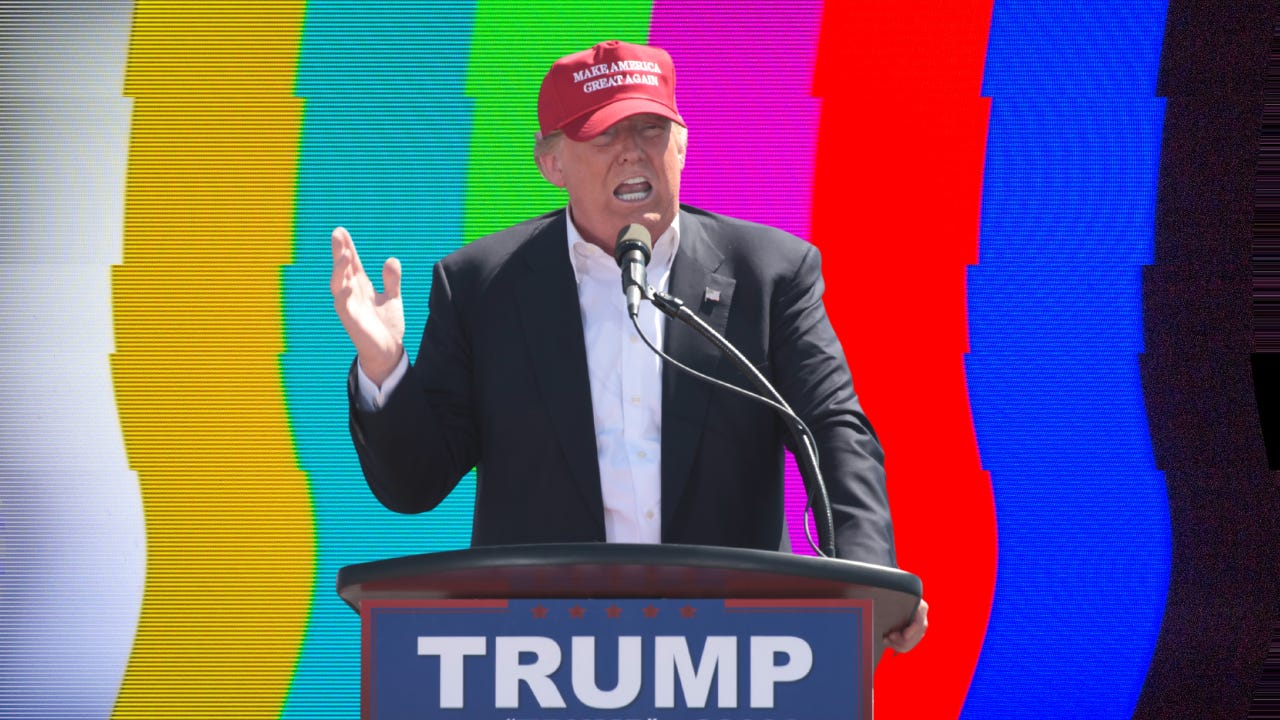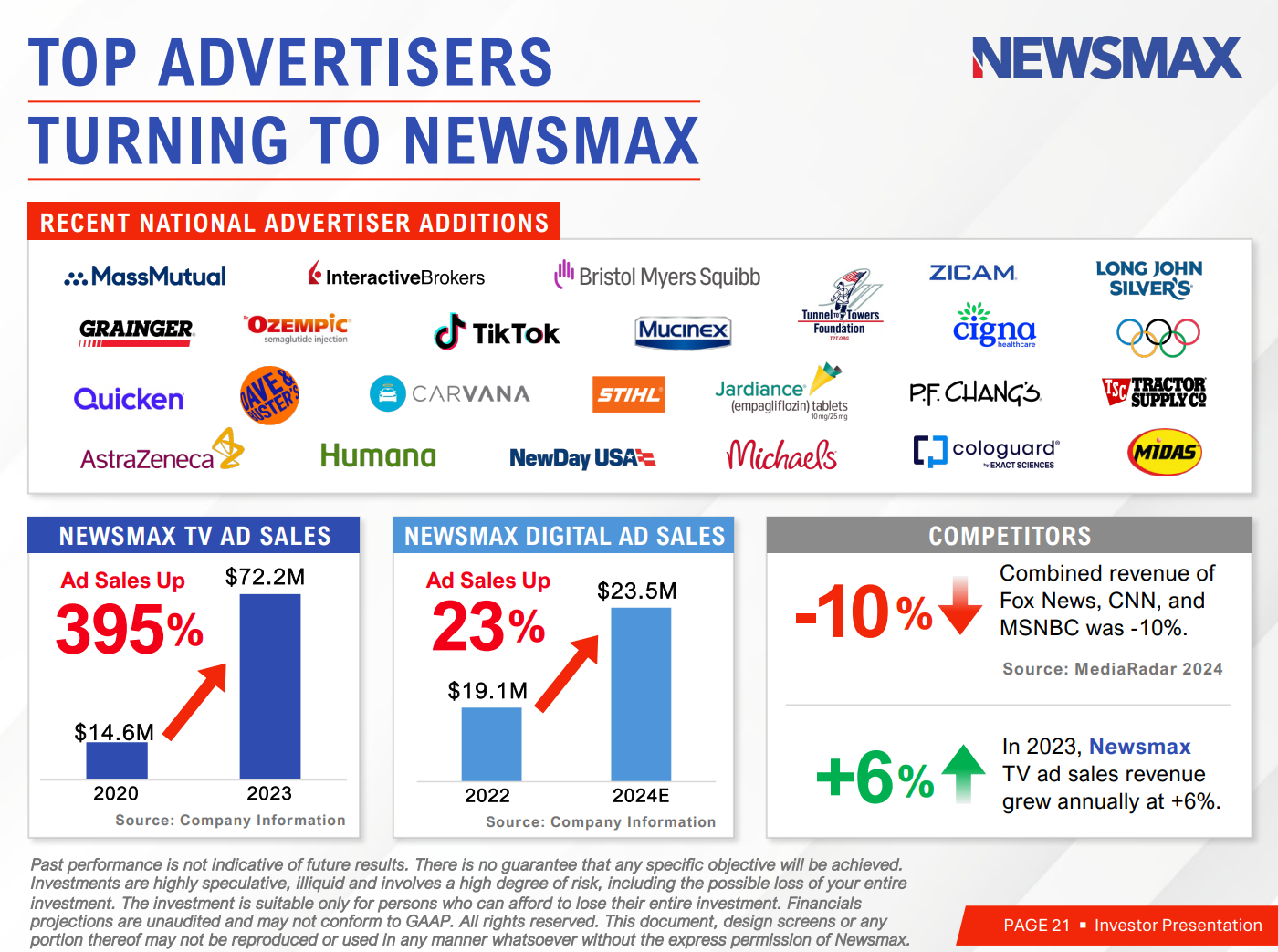The Trump Mediaverse Expands: JD Vance, News Corp and TMTG
Plus: AI DJs, The Telegraph sale and Digital IDs
The flood of money into the Trump campaign has been extraordinary. $400 million of fresh cash at last count. It follows the ex-President of the United States dodging death and the appointment of JD Vance as his VP nominee.
A former US Marine war correspondent, who graduated from Ohio State University and then Yale Law, Vance’s breakout moment was the release of his 2016 Hillbilly Elegy memoir.
The book, published by News Corp-owned HarperCollins, explored Vance’s Scots-Irish heritage and his family's Appalachian experience – alcoholism, abuse and an unstable home life.
Its release was perfectly timed. ‘Flyover country’ was back on the US media’s agenda, as reporters began to investigate the appeal of Trump to America’s forgotten voters.
Hillbilly Elegy has since “rocketed” – to use the journalise – up the book charts and the 2020 film depiction on Netflix is also seeing renewed interest. It’s no surprise then that Vance’s first sit-down interview after the VP nomination was with Fox News.
That fact, alongside News Corp’s involvement in his career, seems to run contrary to Trump Jr’s claim that the Republican Party no longer bends the knee to Murdoch (it’s still bending something).
There is also a technology angle to Trump’s donations bonanza. Vance is well connected in Silicon Valley and Trump’s pro-cryptocurrency stance has won him favour with some of the US’ biggest and most influential VC funds, most notably the founders of Andreessen Horowitz.
Beyond crypto, these pro-Trump techies will also gain more influence over the future AI policy, which has currently been shaped around safety and existential threats to the human race.
A cynic would say that some companies have been pushing for regulatory moats. Elon Musk and other libertarian-minded tech leaders want more openness and competition around the technology.
Elsewhere in the expanded Trump mediaverse, the Trump Media and Technology Group (TMTG) hit a recent high of $46 per share following the shooting, propelling the business’ market cap to just under $8 billion.
But the bump still left the shares well below the $70 mark it hit earlier in the year. It should be noted, however, that TMTG did issue new shares last month.
Rumble, which provides some infrastructure services to TMTG, also saw its shares increase. The NASDAQ-listed company is now trading around $7, below the $8 mark it was at last year.
The pro-Trump broadcaster Newsmax is also trying to get in on the act. The outlet published a statement from its CEO, Christopher Ruddy, saying that he spoke to Trump after the assassination attempt.
Ruddy went on to criticise CNBC and MSNBC, whilst trying to sell private shares of his company to viewers to raise $225 million.
The CEO claimed Newsmax will IPO (on NASDAQ or The New York Stock Exchange) this year or next. The company lost $41.7 million last year, according to its own documents. Ruddy has stated that its revenues could reach $180 million this year.
Risk factors include:
Future losses
Changes in consumer behaviour
Increased competition
Newsmax also still needs to pay Dominion Voting Systems a remaining $39 million after settling a defamation case related to the last US general election. Dominion filed the complaint in August 2021 and the agreement between the parties came in 2023. Newsmax has already handed over $41 million in relation to the dispute.
🤔 Other things in tech and media I’ve found interesting
Digital ID back on the agenda. The case for compulsory digital identity cards in the UK has returned. Tony Blair and his institute are for the policy. I’ve outlined some important questions below about it:
Is the government happy to build new centralised databases with significant personal data?
At what cost?
Given past hacks, would the government admit that the project would immediately go on the National Risk Register?
How would enrolment and registration work?
Would the whole project impact trust in the government (especially amongst minority groups)?
Digital ID advocates claim, like a magical policy wand, it will help solve all manner of issues, including immigration. But why not make the existing systems work (the indie chief inspector of borders and immigration pointed out several flaws until the last government fired him)
We already have ID cards (passports, driving licences and so on) so why create another level of government infrastructure and a stealth tax on citizens?
Rural broadband (and the lack of it) is still an issue. Others don’t have smartphones. Will these people be excluded from society?
How would digital ID enforcement work and who would carry it out, the police?
What budget would a government give the NHS to help cope with the transition to digital ID?
How, practically, would you unify the DVLA, Passport Office and National Insurance databases?
How would the collected data be shared?
How many functions/apps would the Digital ID have?
Overall, how would a Digital ID project not become a large IT infrastructure that runs over time, runs over budget and undermines public trust?
AI DJs. First, here’s a really good thread from X on AI’s trust issues. Second, I note with great interest that Spotify has updated its AI DJ function to include a Spanish-language voice. Increasingly, new and old media are trying to make their content more accessible to the Hispanic world.
Telegraph sale latest. The Telegraph is reporting that CVC, the private equity giant, will make a bid for The Telegraph Media Group. Redbird IMI could remain as a minority shareholder. The bid is expected to be under £510 million. The interest apparently comes from CVC's sports, media & entertainment team.
Lord Saatchi, the Conservative peer, has also been considering a bid for the publisher. Saatchi has apparently discussed the possibility of assembling a bid with Lady Lynn Forester de Rothschild, a former director of The Economist Group.
Paul Marshall, the hedge fund backer of GB News, National World and Daily Mail General Trust are all expected to enter the competition for the prized media asset as well.
🎙️ The Political Press Box
My latest long-form interviews include Morten Morland, Seb Whale and the FT’s Lucy Fisher.
🎥 Video essays
📖 Essays
How disinformation is forcing a paradigm shift in media theory
Welcome to the age of electronic cottages and information elites
Operation Southside: Inside the UK media’s plan to reconcile with Labour
📧 Contact
For high-praise, tips or gripes, please contact the editor at iansilvera@gmail.com or via @ianjsilvera. Follow on LinkedIn here.
197 can be found here
196 can be found here
195 can be found here
194 can be found here
193 can be found here



